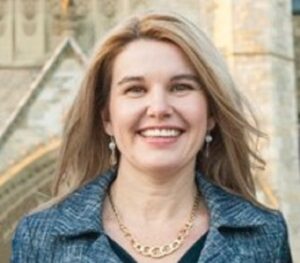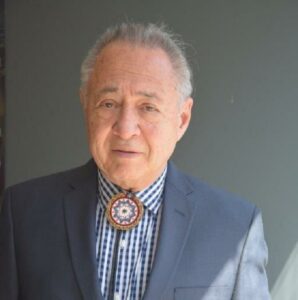RBC embraces reconciliation initiative making course mandatory for employees

By Sam Laskaris
TORONTO— The Royal Bank of Canada (RBC) is certainly doing its part towards reconciliation.
That is because RBC has answered the call that stemmed from the country’s first economic reconciliation film.
The film titled, Reconciliation on Bay Street, issued a call to corporate Canada, on the heels of the Truth and Reconciliation Commission’s final report.
More specifically, there was a movement seeking better anti-racism and intercultural competency training in all levels of business across the country.
To this end, a multimedia course featuring 10 modules was launched. The course, Four Seasons of Reconciliation, was developed and launched by Reconciliation Education in partnership with First Nations University of Canada.
RBC embraced the initiative by making it mandatory for all of its employees who deal face-to-face with clients to take the course.
About 5,000 RBC employees have started the course.

Dale Sturges, who is RBC’s national managing director for its Indigenous financial services group, said it has been “an eye-opening experience” for those financial services workers that have taken the course.
“It’s been incredibly positive,” he said. “And a lot of employees have said how privileged they are the company has made this possible for them.”
To recognize RBC’s commitment to this initiative, a Pipe Ceremony involving company officials and First Nations University of Canada representatives was recently held at the school’s Regina, Saskatchewan, campus.
Bettina Schneider, the university’s associate vice-president academic, is thrilled with the commitment RBC has demonstrated. She is hoping countless others follow suit.
“We’re hoping many more jump on board,” she said.
Schneider, who is also an associate professor in business and public administration with the university’s department of Indigenous science, environment and economic development, believes it is extremely meaningful for Canadian companies to have the opportunity to be involved with this venture.

“I think it’s incredibly important to have this type of education,” she said.
Andree Cazabon, a Canadian filmmaker, director and producer who is currently living in Regina, made the documentary Economic Reconciliation as well as the Four Seasons of Reconciliation course material.
Cazabon, who is non-Indigenous, made a personal and professional 10-year commitment to reconciliation back in 2007. Her involvement with these initiatives is a continuation of that commitment.
Cazabon said about 80 other organizations from across the country have shown interest in the project.
“Every workplace in Canada is touched by this,” she said. “I think it’s critical for the workplace to play a role with this education. This course provides the building blocks from which the country can go forward with reconciliation.”

Maurice Switzer, the former director of communications for Assembly of First Nations and Union of Ontario Indians, served as the chief writer for the course modules.
“It’s been my privilege to contribute to some of the groundbreaking projects that Andree Cazabon has created to increase awareness and understanding in Canada about Indigenous peoples and issues,” said Switzer, a citizen of the Mississaugas of Alderville First Nation who is currently living in North Bay. “I am unaware of any non-Indigenous person who has dedicated as much time and effort to this purpose.”
Switzer also praised the RBC.
“Since their 1997 comprehensive ‘Cost of Doing Nothing’ analysis of the recommendations of the landmark report of the Royal Commission on Aboriginal Peoples, The Royal Bank of Canada has been the highest-profile corporate advocate of the need for some form of national reconciliation with First Peoples. Canada’s business sector has a vested interest in the success of Indigenous peoples and RBC continues to demonstrate leadership in making that success a reality.”

